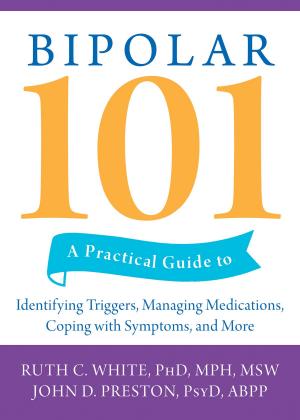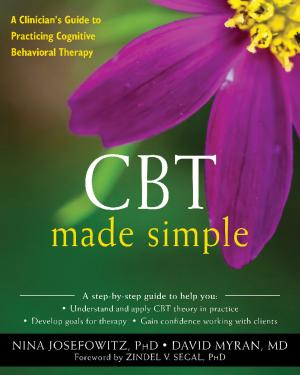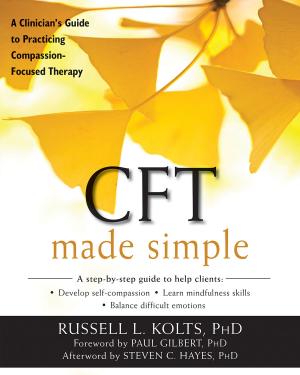ACT for Depression
A Clinician's Guide to Using Acceptance and Commitment Therapy in Treating Depression
Nonfiction, Health & Well Being, Psychology, Clinical Psychology| Author: | Robert Zettle, PhD | ISBN: | 9781608826285 |
| Publisher: | New Harbinger Publications | Publication: | December 1, 2007 |
| Imprint: | New Harbinger Publications | Language: | English |
| Author: | Robert Zettle, PhD |
| ISBN: | 9781608826285 |
| Publisher: | New Harbinger Publications |
| Publication: | December 1, 2007 |
| Imprint: | New Harbinger Publications |
| Language: | English |
Psychological research suggests that cognitive behavior therapy (CBT), used alone or in combination with medical therapy, is the most effective treatment for depression. Recent finding, though, suggest that CBT for depression may work through different processes than we had previously suspected. The stated goal of therapeutic work in CBT is the challenging and restructuring of irrational thoughts that can lead to feelings of depression. But the results of recent studies suggest that two other side effects of CBT may actually have a greater impact that thought restructuring on client progress: Distancing and decentering work that helps clients stop identifying with depression and behavior activation, a technique that helps him or her to reengage with naturally pleasurable and rewarding activities. These two components of conventional CBT are central in the treatment approach of the new acceptance and commitment therapy (ACT). This book develops the techniques of ACT into a session-by-session approach that therapists can use to treat clients suffering from depression.
The research-proven program outlined in ACT for Depression introduces therapists to the ACT model on theoretical and case-conceptual levels. Then it delves into the specifics of structuring interventions for clients with depression using the ACT method of acceptance and values-based behavior change. Written by one of the pioneering researchers into the effectiveness of ACT for the treatment of depression, this book is a much-needed professional resource for the tens of thousand of therapists who are becoming ever more interested in ACT.
Psychological research suggests that cognitive behavior therapy (CBT), used alone or in combination with medical therapy, is the most effective treatment for depression. Recent finding, though, suggest that CBT for depression may work through different processes than we had previously suspected. The stated goal of therapeutic work in CBT is the challenging and restructuring of irrational thoughts that can lead to feelings of depression. But the results of recent studies suggest that two other side effects of CBT may actually have a greater impact that thought restructuring on client progress: Distancing and decentering work that helps clients stop identifying with depression and behavior activation, a technique that helps him or her to reengage with naturally pleasurable and rewarding activities. These two components of conventional CBT are central in the treatment approach of the new acceptance and commitment therapy (ACT). This book develops the techniques of ACT into a session-by-session approach that therapists can use to treat clients suffering from depression.
The research-proven program outlined in ACT for Depression introduces therapists to the ACT model on theoretical and case-conceptual levels. Then it delves into the specifics of structuring interventions for clients with depression using the ACT method of acceptance and values-based behavior change. Written by one of the pioneering researchers into the effectiveness of ACT for the treatment of depression, this book is a much-needed professional resource for the tens of thousand of therapists who are becoming ever more interested in ACT.















